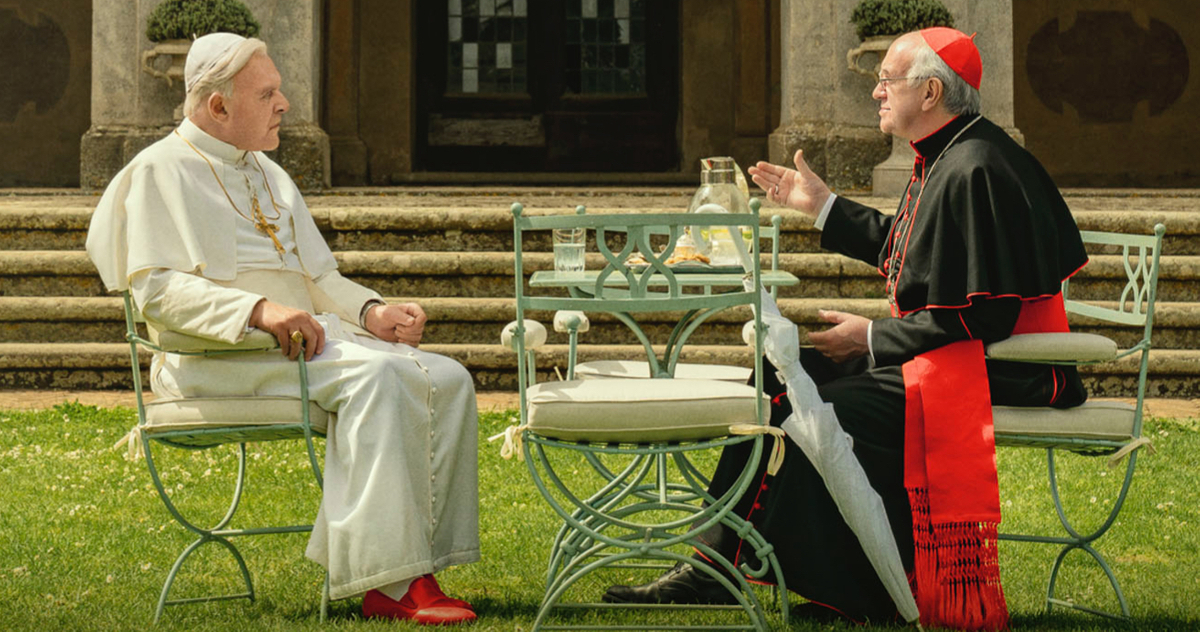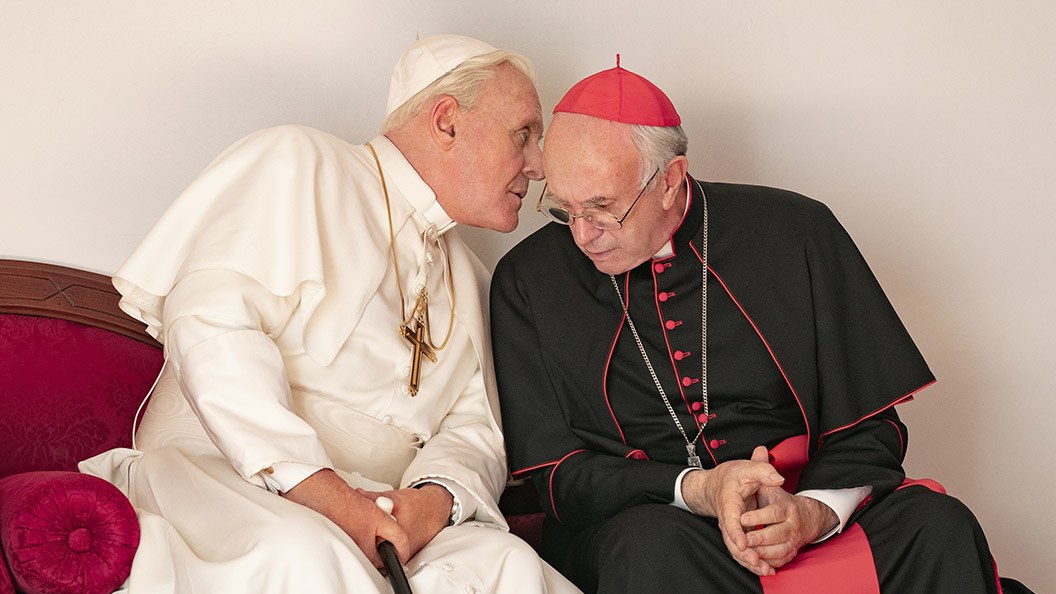by Chris Feil
Late in Fernando Meirelles’ The Two Popes, Jonathan Pryce’s Cardinal Bergoglio (who would eventually become the current Pope Francis) throws up his arms in befuddlement and spouts “Two popes?!” That kind of winning self-aware wit flows throughout the film, an unexpectedly comedic chamber piece that thrusts Pryce opposite Anthony Hopkins as Pope Benedict XVI. Theirs is a gentle battle of minds as the film plays out mostly through several meetings between the two, with Bergoglio the somewhat progressive mind pushing for change in the Catholic church and Benedict adhering to stasis and tradition.
This duet of performances finds both actors providing some of their best work in quite some time, each with a rich well of emotional intelligence towards their characters and their scene partner. Pryce is incredibly warm as the future Pope Francis, generating his joy with uncanny familiarity but especially his sudden traditionalist contradictions. As Pope Benedict, Hopkins is pensive with widening cracks in his convictions, favoring a beautifully subtle progression of awareness rather than grand gestures. And both are often gaspingly funny while maintaining the film’s softer tone. There will certainly be flashier Best Actor options this year, but perhaps not as many that operate on as many levels as Pryce and Hopkins do here.
Meirelles makes a film about disparate perspectives coming together and hashing out what might be irreconcilable between them, perhaps one of the more soothing examples of a film reconciling with our growing inability to speak to one another in modern times. It’s drama comes from communication and devotion to unity enacting personal growth - or at least getting out of the way to prevent further institutional harm. Luckily, the film doesn’t patronize or reduce to hackneyed Greater Good maudlinism of lesser films (even some at this very festival). Yet the film is also smart enough to know that you cannot talk about the institution as a monolith without a sense of history, both in its unforgivable mistakes and its ancient pageantry.

Personal history is also significant to the larger cultural healing as Meirelles paints Popes, but it stumbles over extended flashbacks that halt the film’s lovely and engaging energy. Detailing Bergoglio’s lingering guilt over his decisions during political unrest decades prior, the sequences feel like a bit overlong downshift. Sometimes the film forgets that its relationship and active dialogue is what really makes it special, also turning out multiple unnecessary endings that miss a perfect comedic opportunity. But when the film really surprises, it has an infectious, subtle joy loaded with personal grace and often pop-inflected humor. It's been one of the more subdued films of this festival but one of the most deeply felt.
The Two Popes is an uncommonly delicate film that sinks deep despite that it is ultimately about introspection and the importance of listening to affect self-growth. Meirelles is generous and curious with his subject, crafting something from Anthony McCarten’s wordy screenplay (easily the Oscar nominee’s finest accomplishment) that still feels intimately cinematic. Though not at all as hokey as it sounds, the film begs for thoughtful responsibility with how we consider the personal, the political, and the spiritual within ourselves and our world - no person is an island serving all three at once. Not even our popes. Both of them. B